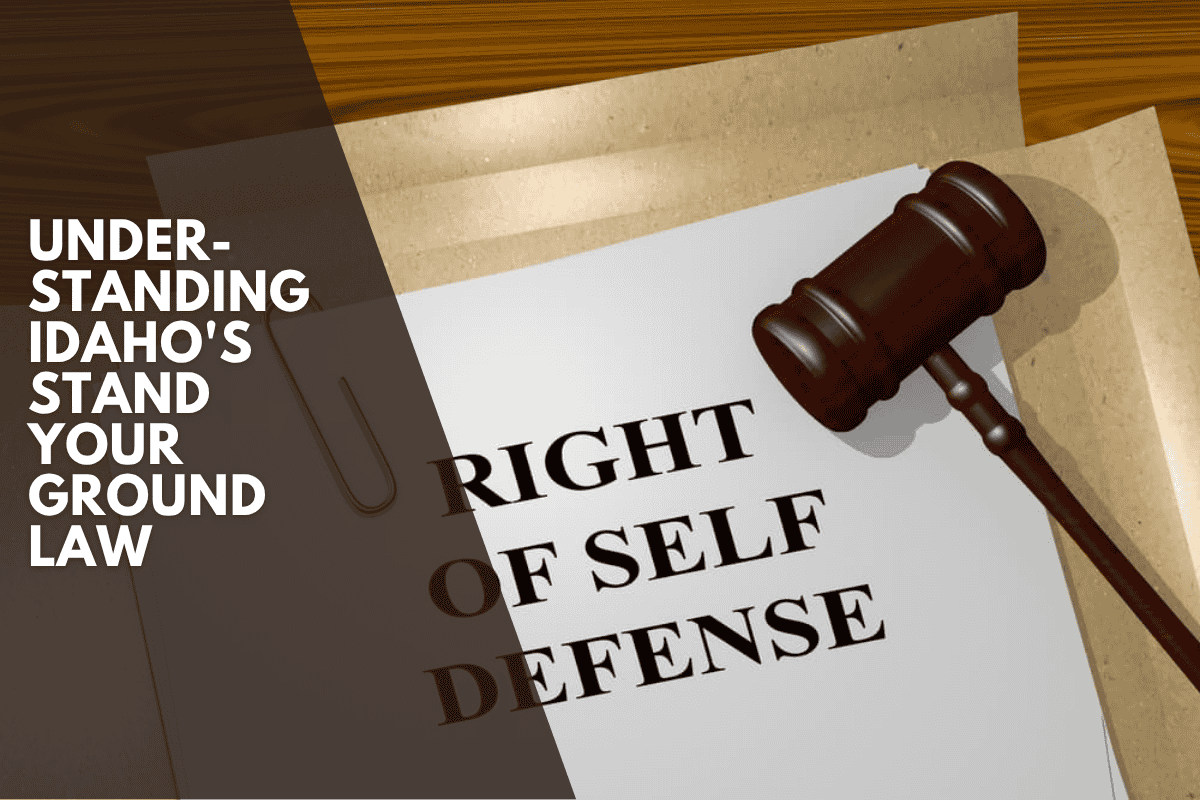Idaho’s Stand Your Ground law allows individuals to use force, including deadly force, in self-defense or in defense of others without a duty to retreat, provided they are in a place where they have a legal right to be. This law applies both inside and outside the home and is designed to protect those who reasonably believe that force is necessary to prevent imminent harm.
Key Provisions
No Duty to Retreat
Idaho law explicitly removes the duty to retreat before using force in self-defense or defense of another, as long as the person is lawfully present at the location.
This means that if you are attacked or threatened with imminent harm, you are not legally required to attempt to escape or withdraw before defending yourself.
Reasonable Belief and Proportionate Force
The law requires that the use of force must appear necessary to a reasonable person in a similar situation and with similar knowledge, judged without the benefit of hindsight.
Force used must be proportionate to the threat. Lethal force is generally only justified if there is a reasonable belief of imminent death or serious bodily harm.
Imminent Threat Requirement
Self-defense is justified only when there is a present and immediate threat to your safety or the safety of others.
The threat must be more than just offensive words; there must be a credible risk of harm.
Castle Doctrine
Idaho’s law also incorporates the Castle Doctrine, which allows individuals to use deadly force to protect themselves and others in their home from intruders, provided the force is reasonable and the intruder is committing a felony or intends harm.
Legal Justification
Self-defense is considered an affirmative defense in Idaho. This means the defendant admits to the act but claims it was legally justified due to the circumstances.
The law allows for the defense even if the danger was only apparent, as long as the belief in the threat was reasonable at the time.
Practical Example
A recent case in Idaho demonstrates the law in action: A resident who fatally shot an attacker outside his home was not prosecuted because prosecutors determined he reasonably believed he was in imminent danger and acted within the bounds of Idaho’s Stand Your Ground and self-defense laws.
Limitations
The use of force must not be excessive; it must be limited to what is reasonably necessary to prevent harm.
Self-defense cannot be claimed if the threat has ended or if the force used was disproportionate to the threat faced.
Table
| Feature | Idaho Stand Your Ground Law |
|---|---|
| Duty to Retreat | No, if lawfully present |
| Applies Where? | Anywhere you have a legal right to be |
| Threat Requirement | Imminent and reasonable |
| Proportionate Force | Required |
| Castle Doctrine | Yes, for home defense |
| Affirmative Defense | Yes |
Idaho’s Stand Your Ground law provides broad legal protections for individuals who use force in self-defense, removing the obligation to retreat and emphasizing the reasonableness of the perceived threat and response. However, the use of force must always be proportionate and justified by an imminent threat
Sources
[1] https://giffords.org/lawcenter/state-laws/stand-your-ground-in-idaho/
[2] https://en.wikipedia.org/wiki/Stand-your-ground_law
[3] https://www.adbattorneys.com/blog/2023/09/understanding-self-defense-in-idaho-criminal-cases/
[4] https://www.ncsl.org/civil-and-criminal-justice/self-defense-and-stand-your-ground
[5] https://www.rand.org/research/gun-policy/analysis/stand-your-ground.html











